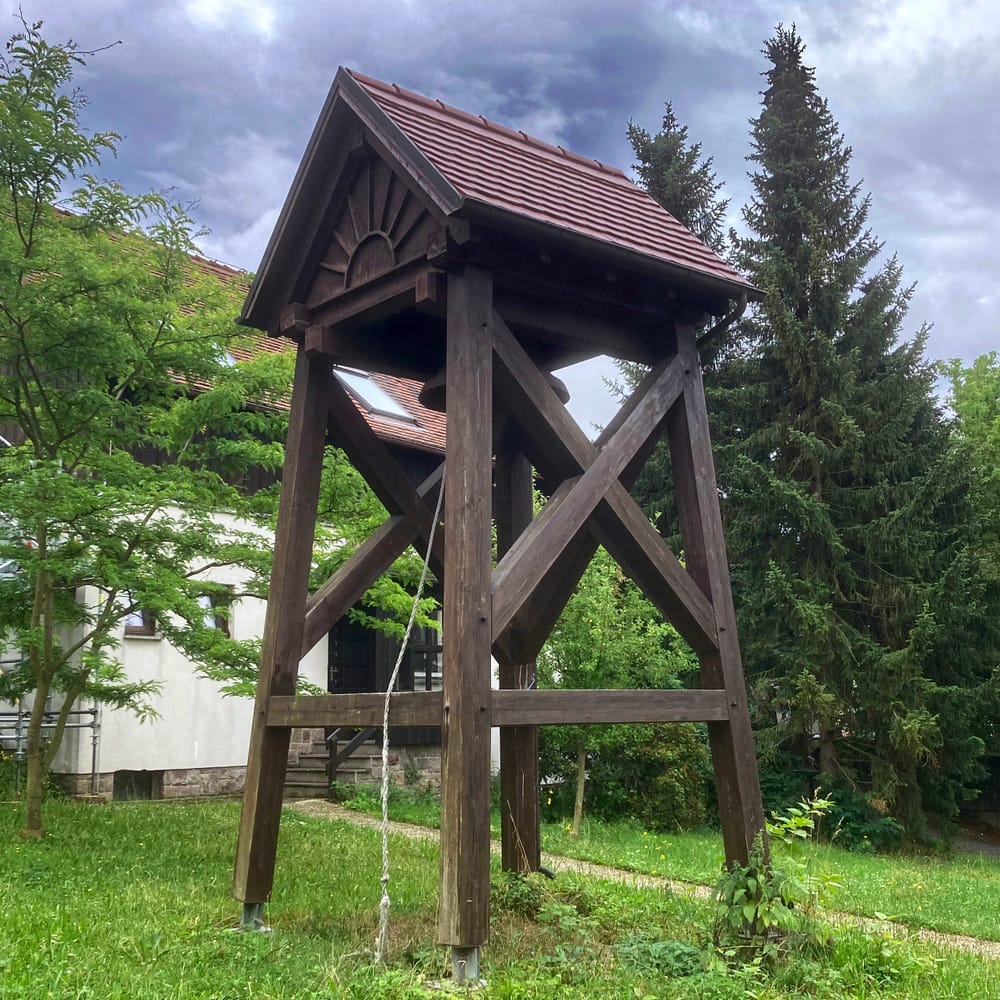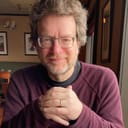Stay in the Loop
BSR publishes on a weekly schedule, with an email newsletter every Wednesday and Thursday morning. There’s no paywall, and subscribing is always free.
“I drove and got them.”
One man, his van, and 18 hours: Journey to an orphanage in Kyiv

The Russians, invading Ukraine at the end of February 2022, pounced on the capital city of Kyiv. By April, they were forced to withdraw, but missile and drone strikes continued to rain down death from the sky. The plight of 13 orphans and four care workers there weighed heavily on an electrician living three countries away. He decided to do something about it.
We were sitting at one of a dozen picnic tables, in a backyard of a pastor’s house, down a gravel path from a church, in a village nestled into evergreen forests and wheat and corn fields in Saxony, Germany, between Zwickau and the Czech border. The tables were narrow, the kind to have if you want people to sit closer and conversation to come easier.
When we sat down, with plates of cookies or fudge squares or slices of Apfelkuchen or wedges of cheesecake or chocolate cake from the dining room table inside the parsonage, a woman came by with a carafe to fill the coffee cups already awaiting us. The cups were china, on saucers. Coffee in Germany, inside or outside, unless it’s to-go from a shop, is always in china, and usually on a saucer. This was mid-afternoon Kaffee und Kuchen done right.
A friend’s relative
My wife Jackie and I sat across from each other. Stefan sat next to me. He had two cookies on his plate but was mostly interested in the coffee. He’s one of the most energetic men I know, slightly built but with powerful, cabled forearms that remind me of split white ash. But he looked like he could use that coffee.
We already knew him, a distant relative of our traveling companion. Stefan isn’t his real name. I don’t think he’d get into trouble, but in a world itching for trouble, there’s no telling.
Like most of his generation in the former East Germany, Stefan knows no English. My German is enthusiastic and usually partly wrong, but we plowed ahead in German.
“Soldiers everywhere”
I had been told that Stefan had just been on a long trip. I assumed it was to Romania, since he drives there a lot. The mission he works for in Germany, where he manages a retreat house, is involved with a mission in Romania. From time to time, Stefan loads his van with tools and lumber or other material, drives there, and builds or fixes something. He trained as an electrician but he can build or fix anything. So I asked him if he had just driven to Romania.
“No. Kyiv,” he said.
I paused. “Kyiv?”
He smiled slightly. “Yes, Kyiv.”
Stefan had just driven to Kyiv to bring out four people. With Ukraine filled with invading Russians, he drove from Saxony, through the Czech Republic and Poland to Ukraine and on to Kyiv, picked up four care workers from an orphanage, then drove them south to the mission in Romania. One of them was a lawyer. They needed him for the paperwork.
Before that, Stefan had brought all the orphans out. They were orphans from before the invasion: their parents, from escalating drug abuse, were either dead or incapable of caring for themselves, let alone any children.
“You just drove into a war zone and got them?”
He nodded and looked down to take another sip of coffee.
I looked at Jackie. I didn’t know what question to ask. “How long of a drive is it?”
“Eighteen hours.”
“Straight through, no sleeping?”
“Yes. I don’t mind. But in Ukraine there are little roads. No … highways.” (He said “highways” in English.) “And they’re bumpy, so you have to take your time.”
“Just like the Russians.”
“Oh, yes.”
If Stefan had driven from Philadelphia to St. Louis to Jacksonville, Florida, and back to Philadelphia, it’d have been a similar trip, but on better roads.
“And gasoline?”
“I brought gas with me. 60 liters in cans. No gas stations are open in Ukraine.”

Then the question I should’ve asked first. “Did you see soldiers?”
At this he laughed, “Ha, soldiers everywhere! Ukrainian. Every intersection, with their Kalashes.”
“Kalashes?” Sounded like galoshes.
“Kalashnikovs.” Being East German and over 40, he knows the Kalashnikov well. “But they don’t bother with me. They see my German license plate and wave me along.”
Farmers, florists, builders
Stefan is used to being waved along by military authority. The East Germans were more laissez-faire with the church than other communists were. You could go to church, even run a mission. But lines were drawn. You couldn’t be confirmed and go to college, be a professional, work for the government. So Christians had to choose. Stefan took confirmation and became an electrician. He also farms. In his extended family all are confirmed, so all are farmers, homemakers, truck drivers, bakers. His brother is a florist.
Stefan built a large hall for the retreat: two stories, finished basement. He built a bell tower 20 feet high, massive, the 10-by-10 legs and cross pieces and diagonal braces interlocked and dowelled together.
“But you didn’t know about the soldiers when you started,” I said at the picnic table.
He pushed his coffee cup away, put an elbow on the table, and turned toward me. “We didn’t know what was going to happen there. And then, the bombings. So I drove and got them.”
“But you can’t just … drive into Kyiv. Didn’t they dig up the roads leading into the city to stop the tanks?”
“Yes, yes, a certain depth, a certain width, and,” Stefan the builder smiled, “they couldn’t get in. But cars—they wave you around and tell you what little street to drive on.”
“And you knew the way to the orphanage.”
“It was not a problem.”
In the backyard
We were in Germany, on vacation, at a church anniversary festival. The Sunday service didn’t begin until one in the afternoon. Then, this Kaffee und Kuchen, then the Hans Christian Andersen story The Emperor’s New Clothes acted by the youth in the sanctuary (tastefully done: the Emperor wore boxer shorts), then back to the parsonage backyard and grilled Würste and thick slices of Leberkäse on rolls, and bottles of beer in barrels of ice.
When we strolled into the yard after the play, it was pushing 5:30pm. Stefan and his brother, the florist, were standing by the barrels with some other men. Stefan, who just “drove and got them,” waved me over, reached into the ice, and pulled out a dripping beer bottle. “Lunchtime!” he said as I took it from his hand. The men laughed. Stefan’s brother handed me the bottle opener.
Sign up for our newsletter
All of the week's new articles, all in one place. Sign up for the free weekly BSR newsletters, and don't miss a conversation.
 Kile Smith
Kile Smith